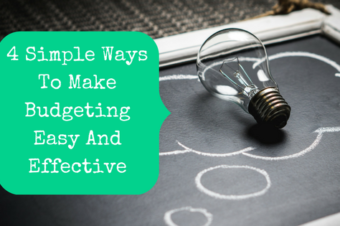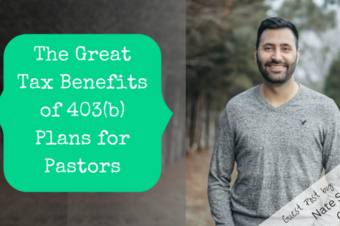How much do you have saved for retirement? Do you think it will be enough? A quarter of American adults have absolutely nothing saved for retirement. This is why you may have heard talk of our nation’s retirement crisis. Most seniors have not accumulated enough money to live on in retirement. This is an even bigger problem among pastors since many have exempted themselves from Social Security.
For most people, the majority of their retirement savings are in a workplace retirement plan, like a 401(k) or 403(b). However, many independent pastors and employees of small businesses have no workplace retirement program available to them. How are they supposed to save for retirement?
What Is An IRA?
If you don’t have access to a retirement plan at work, your only tax-advantaged option is an individual retirement account (IRA). IRAs are available to anyone with an income and their spouse. IRAs are tax-advantaged because depending on the type, either your contributions are tax-free or your withdrawals are.
The big downside to IRAs is their contribution limits. For 2020, the limit is $6,000 a year before you turn 50 and $7,000 afterward. If you start saving young and get a good return on your investments, you can probably save a decent nest egg. However, if you’re well into your 30’s and beyond, you may be looking for other options.
What Is An Individual Brokerage Account?
Without a workplace plan, your only other option is an individual brokerage account. These are not specifically retirement accounts, but just general investment accounts. Anyone can open one, but they don’t get special tax treatment. You pay income taxes on the money that you put in, and capital gains taxes on the money that your investments earn. For more detail on opening a brokerage account, read this article.
What Should I Put In Each Kind Of Account?
If you decide to use both an IRA and a brokerage account for your retirement savings, you need to pay close attention to the investments you put in each. Because of their differing tax treatment, where you put your investments can make a huge difference in how much money you keep in the end.
In a brokerage account, capital gains taxes are due every time an investment is bought or sold. In a tax-advantaged account, taxes are only paid when you put the money in or take it out. What happens while the money is in the account doesn’t matter.
Mutual funds are a good investment vehicle for retirement. Mutual funds can be either actively managed or indexed. Actively managed funds have a team of really smart people buying and selling the stocks that they hold on a regular basis. Index funds hold investments in a set list of companies and rarely change.
If you hold an actively managed fund in a brokerage account, you will owe taxes each time the fund managers change the fund’s investments. Because of this, it is better to hold actively managed funds in your IRA where the fund’s turnover rate will have no tax effect. You will pay a lot less in taxes every year if you use your brokerage account for index funds, since they rarely change and incur taxes.
When looking at funds, check their turnover rate. Fidelity’s 500 Index Fund has a 4% turnover rate while their New Millennium Fund has a 44% turnover rate. Which one would you put in each account? If you want to keep your money invested instead of paying it in taxes, you would put the second fund in your IRA and the first in your brokerage account.
Are Those Really My Only Options?
No, they aren’t, but they’re your best ones. You could always save money in a savings account. But then, instead of growing your money you would slowly be losing it to inflation. Same thing if you keep it under your mattress. If you have a health savings account (HSA) and enough money to cash flow your medical expenses you can use the HSA for retirement. You can read about how to do that here.
In summary, without a workplace retirement plan, your retirement investing options consist of an IRA and individual brokerage account. IRAs are tax-advantaged, so you should max one out before adding a brokerage account. And once you have both, be careful which investments you have in each to limit your tax liability.











